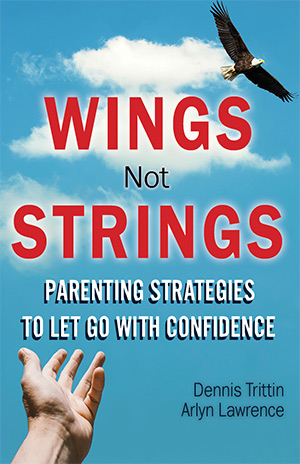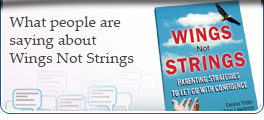Becoming a Masterful Communicator: Part One
“The art of communication is the language of leadership.”
~ James Humes
With the benefit of 66 years of hindsight, I can safely say, “We’ve come a long way, baby,” to borrow a line from a Loretta Lynn song. Surely, we can all agree we’re not there yet, but our world has seen progress on a number of fronts during my lifetime.
At the same time, I think we’ve regressed in some ways. While those of us in the “older than 50 crowd" can occasionally plead guilty to looking at the past with rose-colored glasses, certain areas are so obvious that most objective observers would agree. So, today, and in the next several weeks, I’ll be tackling an issue that has become increasingly concerning, with the hope that it will enlighten and help us reverse course.
Houston, we’ve got a communication problem.
If I were to offer some descriptors of the most common communication complaints I hear, they would go like this:
- People are talking at me and not listening
- Everything has become politicized and is often biased; I can’t have a normal conversation without it devolving into a political rant
- I don’t feel safe saying what I really feel; I am often shamed or bullied when I do
- People are characterizing their opinion as fact and jamming it down our throats
- People seem more comfortable writing their views than sharing them in person
- People are acting more angrily, boldly, arrogantly, disrespectfully, and impulsively on social media, especially when they disagree
- Many young people are struggling with in-person and professional communication
To be sure, several of the above go to the heart, rather than merely to our communication tactics. That said, a number of them derive from violations of common communication standards, and these will be the focus of this blog series.
One reason communication can be challenging is that each of our interactions has a different purpose. Common examples include to inform, persuade, inspire, share, support, and enjoy. Each demand something different from us as communicators. The setting also comes into play, and is often out of our control, ranging from the intimate (in person, one-on-one) to distant (a social media post). If we’re not strategic in our approach, the end result can be a communication breakdown.
So, how do we hit the mark in our communications? The first step is remembering that communication is a two-way street. The second is understanding the key components of communication that we need to get right. If we mess up with any of the following, our interaction will likely be a disappointment:
- Our Words. Certainly, our word choice has an enormous influence on successful communication. We get into trouble when we say something that would have been better left unsaid (hello self-control!) or when we use words that are overly provocative or would cause our audience to feel disrespected or shut down. Our words will either foster mutual understanding or enjoyment or not. By putting ourselves in the position of our audience before the words flow, we can insert a proper filter when communicating our message. If it’s not constructive, it’ll be received as destructive.
- Our Timing. The saying, “timing is everything,” often applies to communication, especially on sensitive topics. No matter what we say or how we say it, if we’re not in the right frame of mind or our audience isn’t, it’s best to wait for a more opportune time. This is especially true of parent-child conversations when either party (or both) is upset. Mutual understanding and respectful sharing are almost impossible if the timing is wrong.
- The Form. As technology has advanced, our communications have become increasingly impersonal. In years past, we shared more in-person, with the advantage of seeing firsthand how our audience was responding. Nowadays, as more of our communications are in written form, breakdowns are more common. We don’t have the benefit of hearing the all-important tone of voice and observing non-verbal cues. This is a significant cause of miscommunication and misinterpretation when we put to writing something better shared orally, and especially, in person. That’s because our audience is imposing, correctly or not, our tone of voice when we communicate in writing. It’s wise to prefer oral communication, especially if the topic is sensitive, personal, provocative, critical, or controversial.
- Our Tone. The tone in our communications reveals whether our true intent is mutual understanding. No matter what we say, if our audience perceives us as arrogant, condescending, disrespectful, untruthful, manipulative, or controlling, we will not succeed. Great communicators anticipate how their audience will receive their message and ensure it comes through in their voice or writing style. Our words and tone must be aligned.
- Our Non-Verbals. Many communication experts argue that body language, facial expressions, and other non-verbal cues have more impact than our words. When I communicate with someone, I pay specially attention to their eyes, mouth, and posture. Why? They reveal engagement, interest, and enjoyment in our conversation—important clues to whether I’m accomplishing my objectives. This is a critical skill for young people to master. Too many are not.
- Goal Alignment. Whether we think of it or not, we usually have goals for our communications. However, our goals are not always congruent with that of our audience. This is especially common when we think we are sharing information, only to find their motive is convincing us of something. Whether we (or our audience) are the instigator, when we don't have the same purpose, our conversation will suffer.
- Relationship Capital of Parties. Arguably, one of the most important ingredients to a good friendship is trust. And it doesn’t just happen overnight. It comes with time and mutually shared experiences and conversations. So, as we communicate with others, it pays to be mindful of where our relationship is—especially if our topic is personal or potentially charged. People who are relationally awkward often don’t understand this concept when they communicate with people they don’t know well—especially when they ask personal or invasive questions—or overly share about themselves.
- Understanding of Our Audience. Successful communication is a two-way street, and that requires us to know our audience to the best of our ability. It is said that the best communicators are the best listeners, and it’s hard to deny. That’s because good listeners are more focused on their audience than themselves. A good rule of thumb is to have the audience command at least 60% of the conversation (assuming one-on-one). Through preparation, great questions, and understanding personality factors, one can better tailor communications to each unique audience. Connection is crucial when it comes to communication.
As you reflect on communication setbacks you’ve experienced, I suspect some of the above will resonate, and that you have some other culprits to add to the list.
I hope you enjoyed “round one” and share it with your family, friends, and any young people you are guiding. Let’s all commit to “upping our games” as communicators, for our own benefit and that of the younger generation. They’re watching. Closely.
Here’s a glimpse into our upcoming topics in the series:
Part Two: Making a Great First Impression
Part Three: Oral Communication Essentials
Part Four: Written Communication Keys
Part Five: Handling Conflict
To great communication!
Tagged as: communication, series, communication skills, life skills, What I wish I knew at 18, making a first impression



















